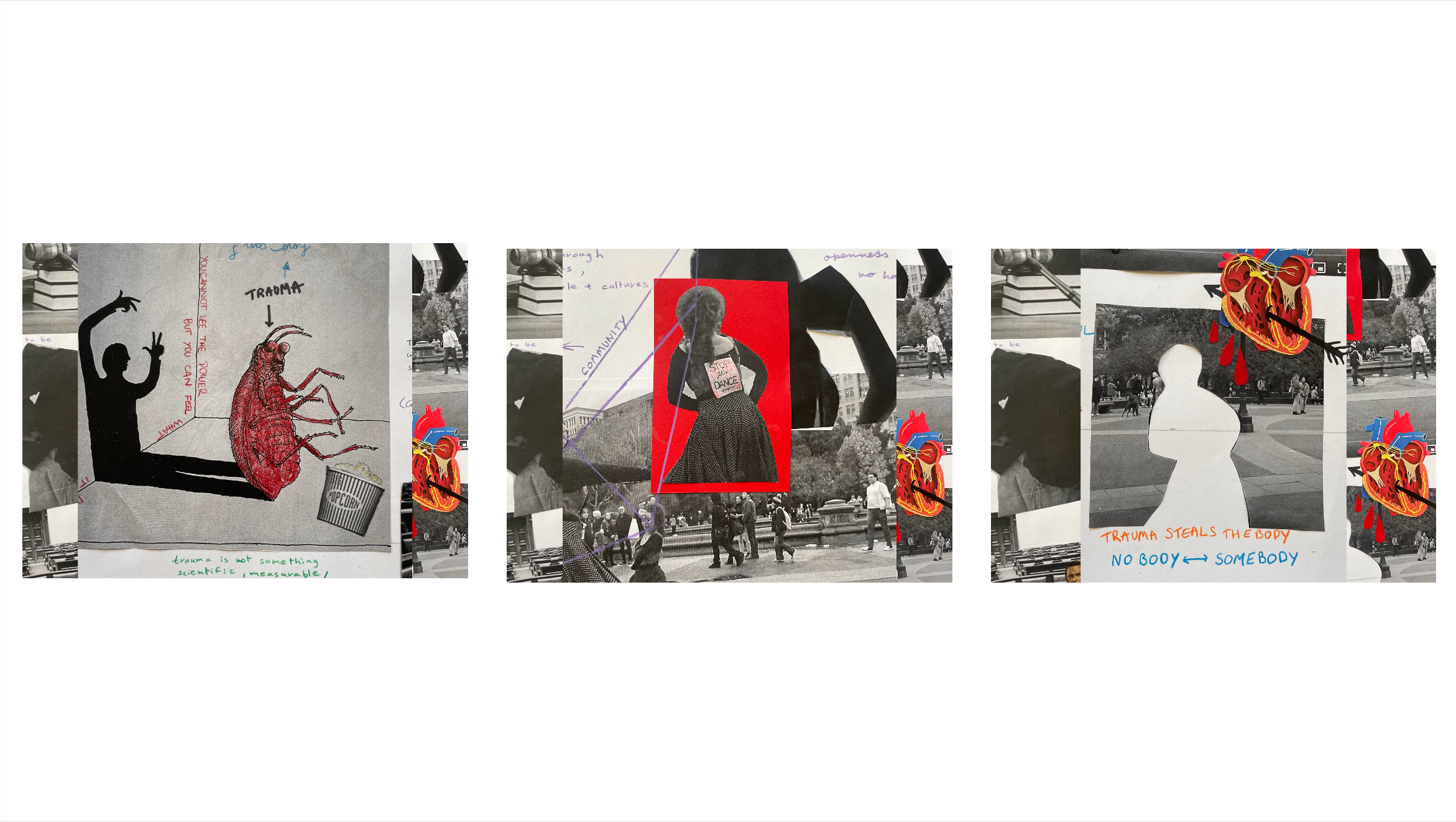Trauma is never just personal, and never just political
This class brought graduate students from throughout the world to study the relationship between memory, trauma, and performance. Memory, trauma, and performance, as the syllabus states, are deeply entangled. They shape and express each other through our individual and collective bodies. Trauma (from Greek for a blow or wound), expresses itself viscerally, through bodily symptoms, ‘reenactments,’ flashbacks, nightmares, and other forms of repeats, experienced in the here and now. The fact that we cannot neatly separate ‘trauma’ from ‘post-traumatic stress’ points to the centrality of reiterated effects that constitute the condition. Violent acts wound families, communities, and entire societies sometimes for years, even generations.
Students clustered into four groups, focusing on projects closest to their personal research interests yet relevant to our shared project. This digital book reflects the thinking and the collaborations developed during the semester.
What do we mean by ‘disappearance’? How can individuals and communities mourn those who are no longer there and whose absence is not recognized? How can people be invisibilized even when they are ‘there’? The violence of dispossession and discrimination takes place in plain sight with few, if any, witnesses. Given these forms of violence that produce historical trauma (conquest, enslavement, discrimination, and disenfranchisement), political trauma (dictatorships, criminal politics), and personal trauma, how can we believe in the ‘myth of justice’? How, then, is trauma transmitted, and how is it ‘repaired’? The funeral performance that ends this project offers one social practice that hopes to turn traumatic memory into reparative memory.
